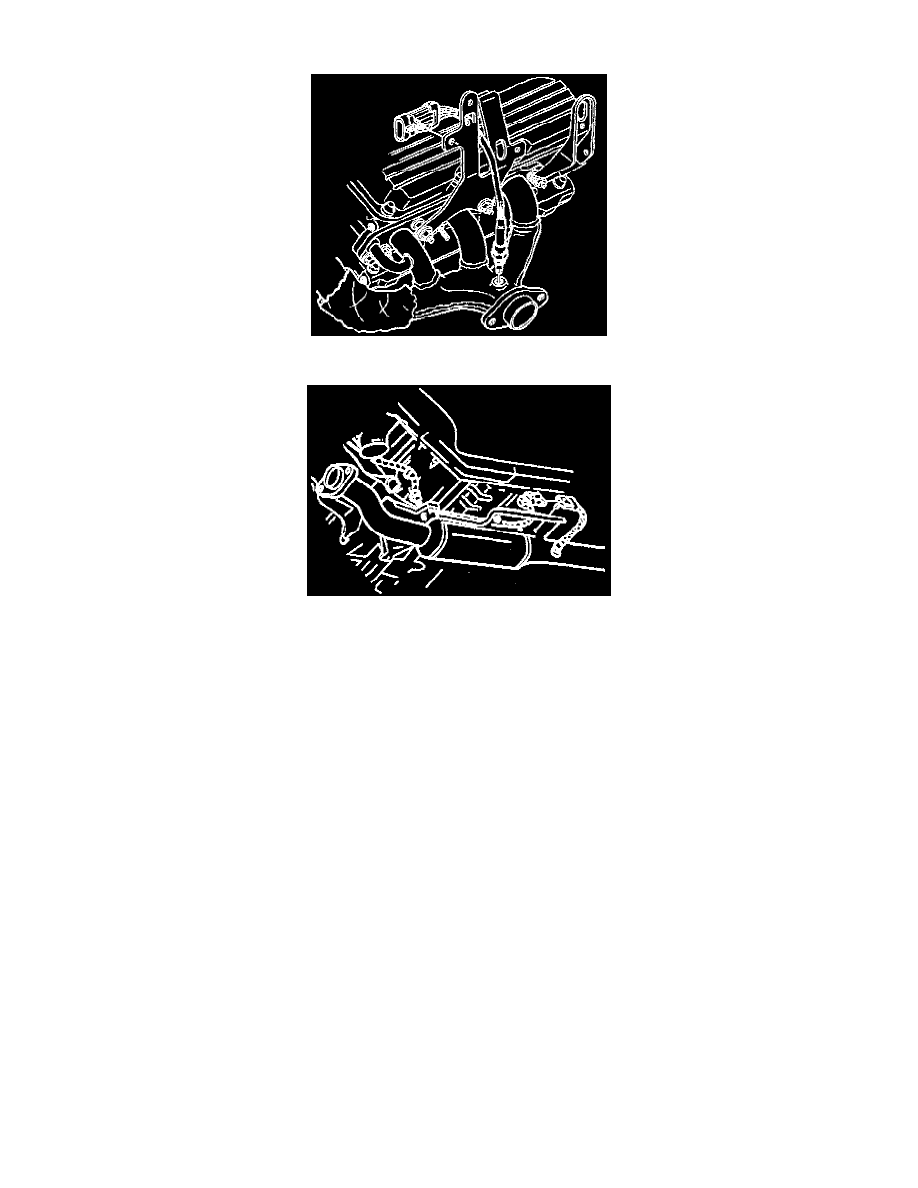Lumina V6-3.8L VIN K (1998)

Oxygen Sensor: Service and Repair
Descriptive
CAUTIONS:
-
Take care when handling the heated oxygen sensor. The in-line electrical connector and the louvered end must be kept free of grease, dirt or other
contaminants. Also, avoid using cleaning solvents of any type. Do not drop or roughly handle the heated oxygen sensor/catalyst monitor. A
dropped sensor is a bad sensor.
-
The heated oxygen sensor may be difficult to remove when the engine temperature is below 48°C (120°F). Excessive force may damage the
threads in the exhaust manifold or the exhaust pipe.
-
The Heated Oxygen Sensor (HO2S) and the Oxygen Sensor use a permanently attached pigtail and connector. Do not remove this pigtail from the
Heated Oxygen Sensor. Damage or the removal of the pigtail or the connector could affect the proper operation of the sensor.
REMOVAL PROCEDURE
1. If the H02S 2 is being replaced, raise the vehicle.
2. Disconnect the electrical connector.
3. Carefully back Out the heated oxygen sensor.
INSTALLATION PROCEDURE
IMPORTANT: A special anti--seize compound is used on the heated oxygen sensor threads. The compound consists of graphite suspended in fluid
and glass beads. The graphite will burn away, but the glass beads will remain, making the sensor easier to remove. New or service sensors will already
have the compound applied to the threads. If a sensor is removed from an engine and if for any reason is to be reinstalled, the threads must have
anti-seize compound applied before reinstallation.
1. Coat the threads of the heated oxygen sensor/catalyst monitor with anti-seize compound P/N 5613695, or equivalent, if necessary.
2. Install the Heated Oxygen Sensor.
Tighten
^
Heated Oxygen Sensor to 41 Nm (30 lb. ft.).
3. Connect the electrical connector.
